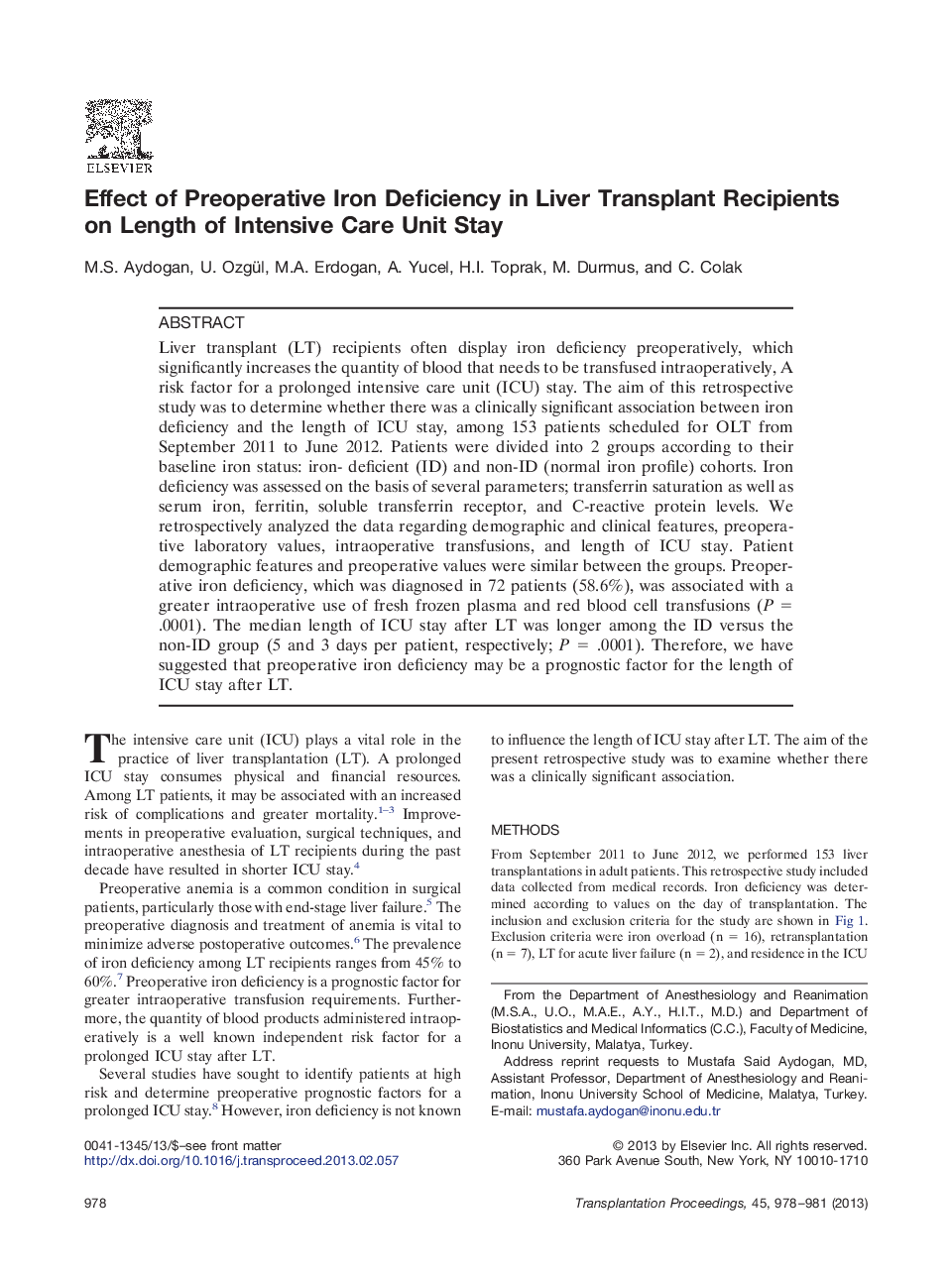| Article ID | Journal | Published Year | Pages | File Type |
|---|---|---|---|---|
| 6246566 | Transplantation Proceedings | 2013 | 4 Pages |
Liver transplant (LT) recipients often display iron deficiency preoperatively, which significantly increases the quantity of blood that needs to be transfused intraoperatively, A risk factor for a prolonged intensive care unit (ICU) stay. The aim of this retrospective study was to determine whether there was a clinically significant association between iron deficiency and the length of ICU stay, among 153 patients scheduled for OLT from September 2011 to June 2012. Patients were divided into 2 groups according to their baseline iron status: iron- deficient (ID) and non-ID (normal iron profile) cohorts. Iron deficiency was assessed on the basis of several parameters; transferrin saturation as well as serum iron, ferritin, soluble transferrin receptor, and C-reactive protein levels. We retrospectively analyzed the data regarding demographic and clinical features, preoperative laboratory values, intraoperative transfusions, and length of ICU stay. Patient demographic features and preoperative values were similar between the groups. Preoperative iron deficiency, which was diagnosed in 72 patients (58.6%), was associated with a greater intraoperative use of fresh frozen plasma and red blood cell transfusions (P = .0001). The median length of ICU stay after LT was longer among the ID versus the non-ID group (5 and 3 days per patient, respectively; P = .0001). Therefore, we have suggested that preoperative iron deficiency may be a prognostic factor for the length of ICU stay after LT.
